Jason Goodwin: ‘We shared the Abbey with the bones of King Alfred’s brothers and Anne Boleyn’s lover’
Our Spectator columnist enjoys the first glimpse of spring and Evensong, the loveliest of Anglican services.
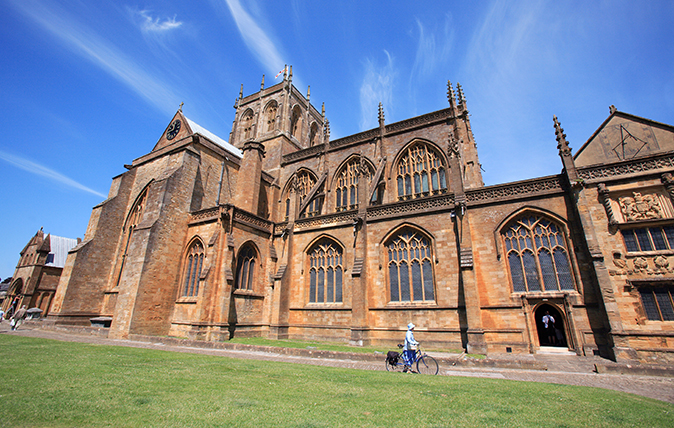
'Cold's all right,’ the farmer says. ‘I don’t mind it cold. You can dress for it. Wet’s what I don’t like.’ I don’t like it so much, either. Not much of a view and all that business of hopping about by field gates that have been poached by cattle, losing a boot and rain down the back of the neck. To what end? Paw prints on the sofa.
Now the skies are pale and frost has stiffened the clods and frozen the water into icy parings in the hoofprints. The bank behind the house is a gathering riot of primroses and the days are lengthening; light still poured through the west window when we arrived at Sherborne Abbey on Sunday.
Evensong is the loveliest of Anglican services. It’s also one of the shortest. The liturgy is easy to follow, taken from the 1549 Book of Common Prayer, when Archbishop Thomas Cranmer composed it in resounding Tudor English from elements taken from monastic traditions of prayer. The whole service lasts about 45 minutes, with Scripture readings, hymns, psalms and the Nunc Dimittis and Magnificat, both taken from the Gospel of St Luke.
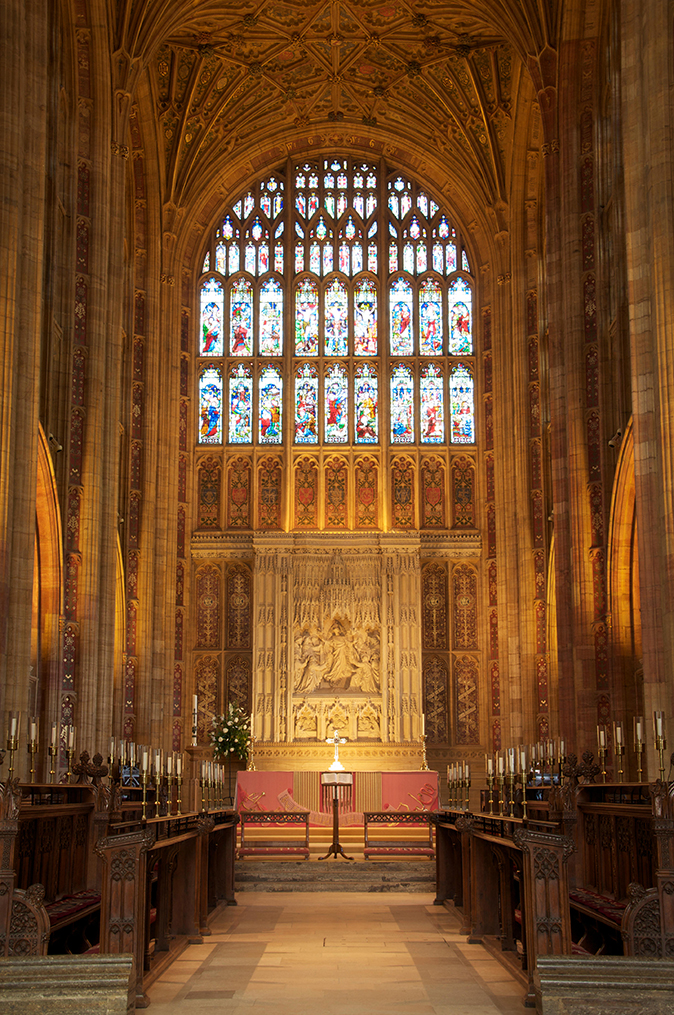
In cathedrals, abbeys and big churches there will be a choir, perfection of a longstanding English tradition renewed by Thomas Tallis and William Byrd in the reign of Elizabeth I, who wrote so many of the settings. Others are by later English composers like Vaughan Williams, Richard Ayleward, Hubert Parry and Herbert Howells.
"It’s not just that Evensong is free or that it delivers astonishingly beautiful music in a numinous place. We shared the Abbey with the bones of King Alfred’s brothers and Sir Thomas Wyatt, Anne Boleyn’s lover, who invented the English sonnet form and died near here in the home of a friend, overheated with hard riding. He knew Cranmer, the Boleyns’ family priest."
Overhead, some of the most intricate vaulting in England expanded in bosses and tendrils across the roof of the nave, sprouting from the pillars in mathematical harmonies that reflected the lacy polyphonies of the choir. In that reflective mood, as the light faded and the windows grew dark, the ancient Abbey did feel like a gathering of souls aboard a ship at sea.
Flat calm: Evensong makes no demands. There’s no Eucharist, no question of dividing the sheep from the goats. No one expects anything from you. ‘Lighten our darkness, we beseech thee, O Lord, and by thy great mercy, defend us from all perils and dangers of this night,’ says the evening prayer. It’s hard to argue with that: even Prof Dawkins admits to liking Evensong.
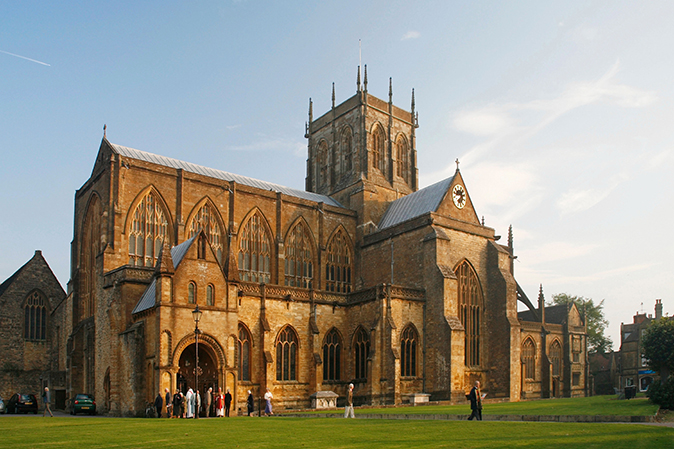
Back home, we lit a fire and I turned up a book about birds I’d never seen before. Our Birds Month by Month is a drab, clothbound book written in the 1940s by Gordon Hamlin and I found it lying by the sofa, but it’s full of incisive stuff about the birds. ‘Sooner or later,’ Hamlin writes, for instance, ‘we shall hear the song thrush repeating his phrases; but the mistle-thrush does not repeat in the same way.’
Exquisite houses, the beauty of Nature, and how to get the most from your life, straight to your inbox.
You can find better photos on the internet, but the text is explanatory and well-observed. Hamlin tells you where each bird will nest and introduces, for March, the great tit with his ‘twofold chime’. ‘Morning and evening he rings the bell for matins and evensong,’ he writes.
It has been cold and it has been dark, but the bulbs are coming up and the days get longer. There’s a new website, www.choralevensong.org, where you can find times of Evensong nearby. ‘Spring is in sight,’ as my new favourite bird book says.
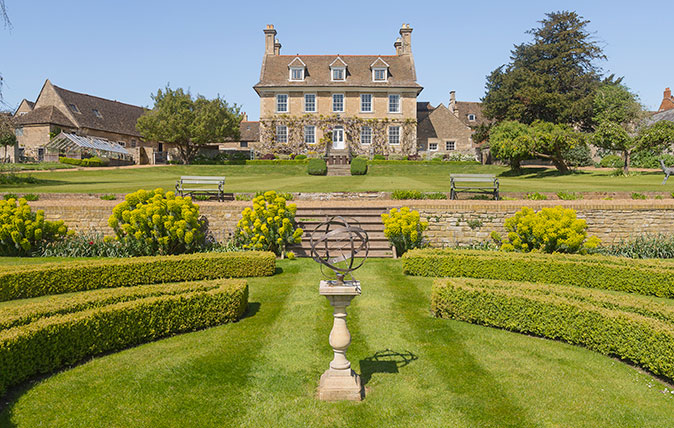
Cobthorne: A home that stands out for its grace, even in the beautiful town of Oundle
This striking town house in Oundle serves as home to the headmaster of the town's famous school.
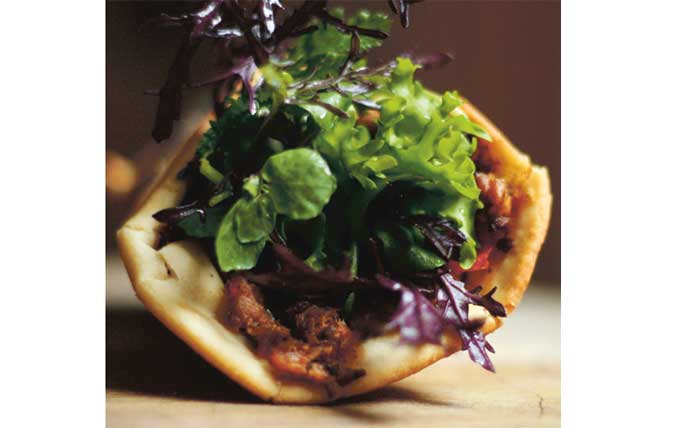
Credit: Lahmacun - Jason Goodwin
The 'Turkish pizza' recipe that's exotic, simple and delicious
Jason Goodwin, author of the Yashim detective novels, shares a recipe from his new cookbook.
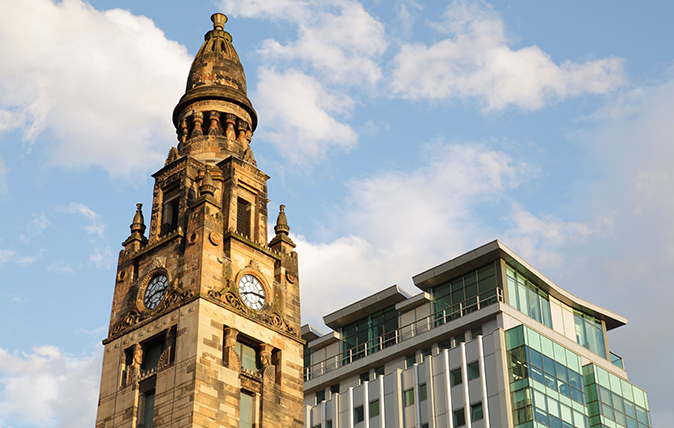
Jason Goodwin: ‘Memories fade. Gavin was right: buildings outlive us all and they’re each memorials. They should not be allowed to disappear’
Our columnist remembers Gavin Stamp, the architectural critic, historian and campaigner.